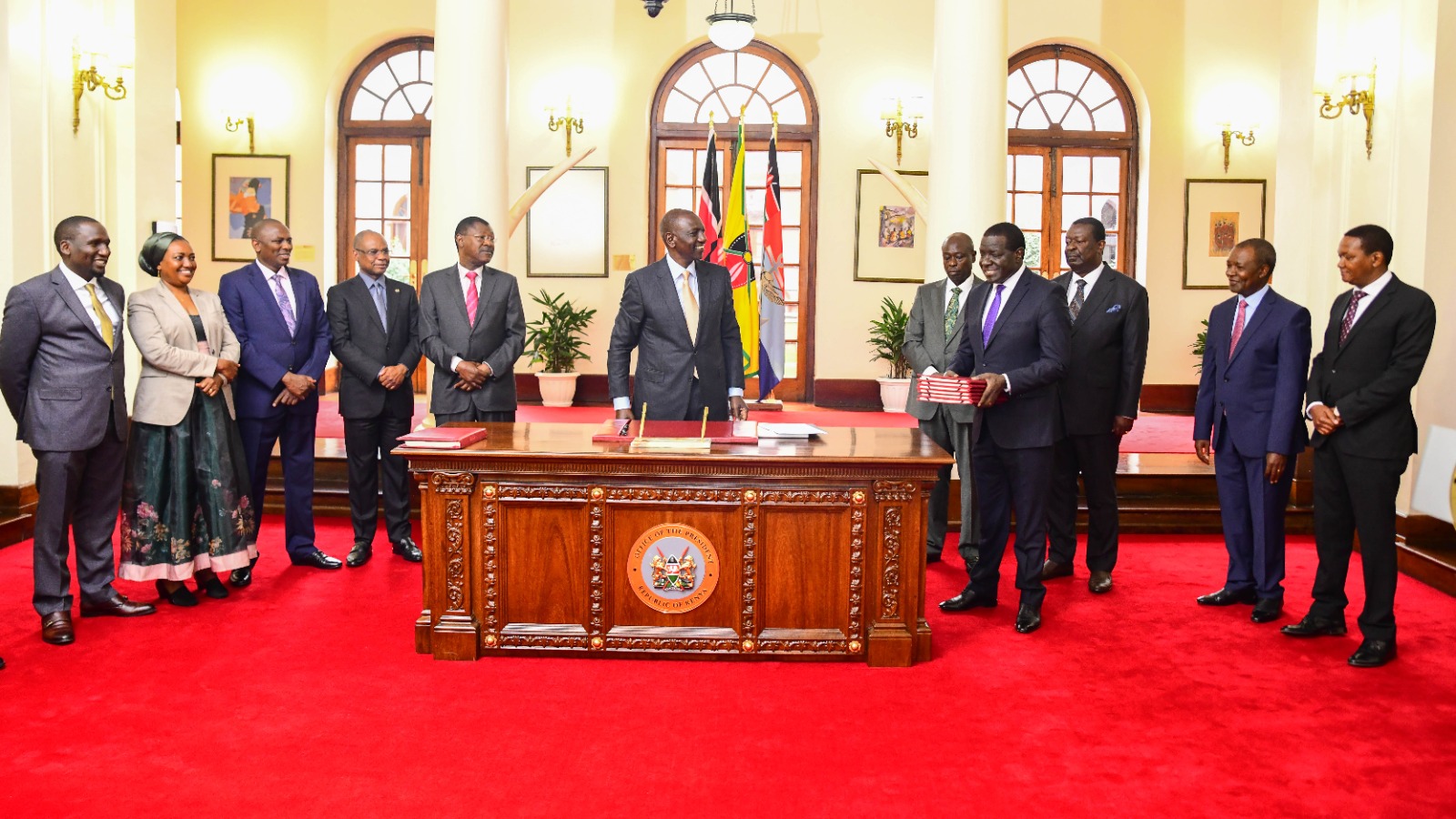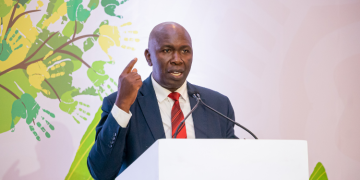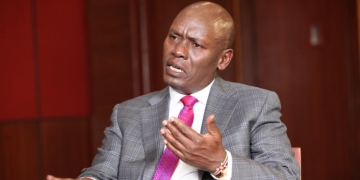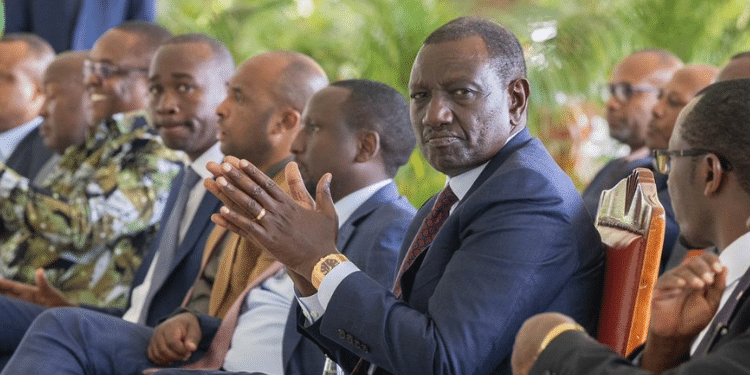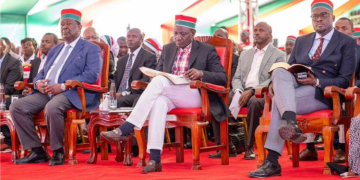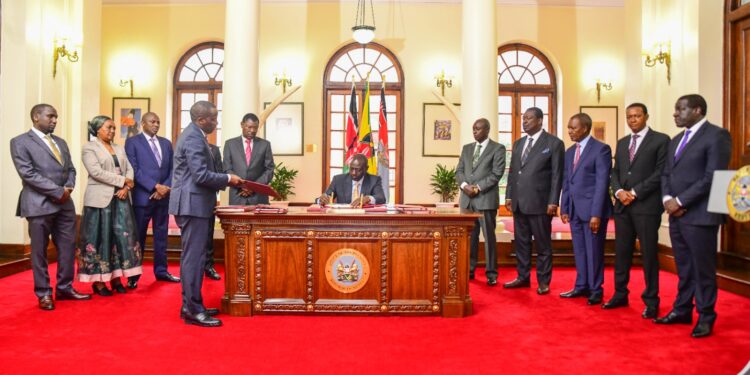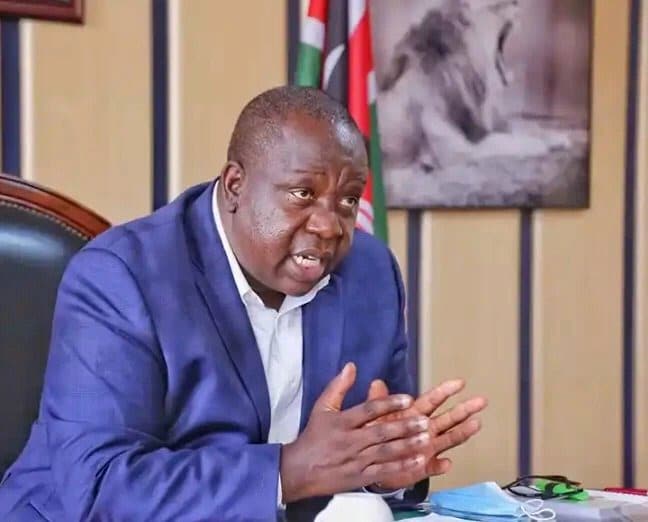President William Ruto on Friday, September 1 signed into law the Anti-Money Laundering and Combating of Terrorism Financing Laws (Amendment) Bill, 2023.
According to a statement by state house, the new law will help address the flaws limiting the war against money laundering and terrorism in Kenya.
Provisions of the New Anti-Money Laundering Bill 2023
The amended bill allows a fugitive criminal who consents to be extradited to a requesting State to surrender.
It also allows the Financial Reporting Centre operational independence by excluding it from the definition of State Corporation.
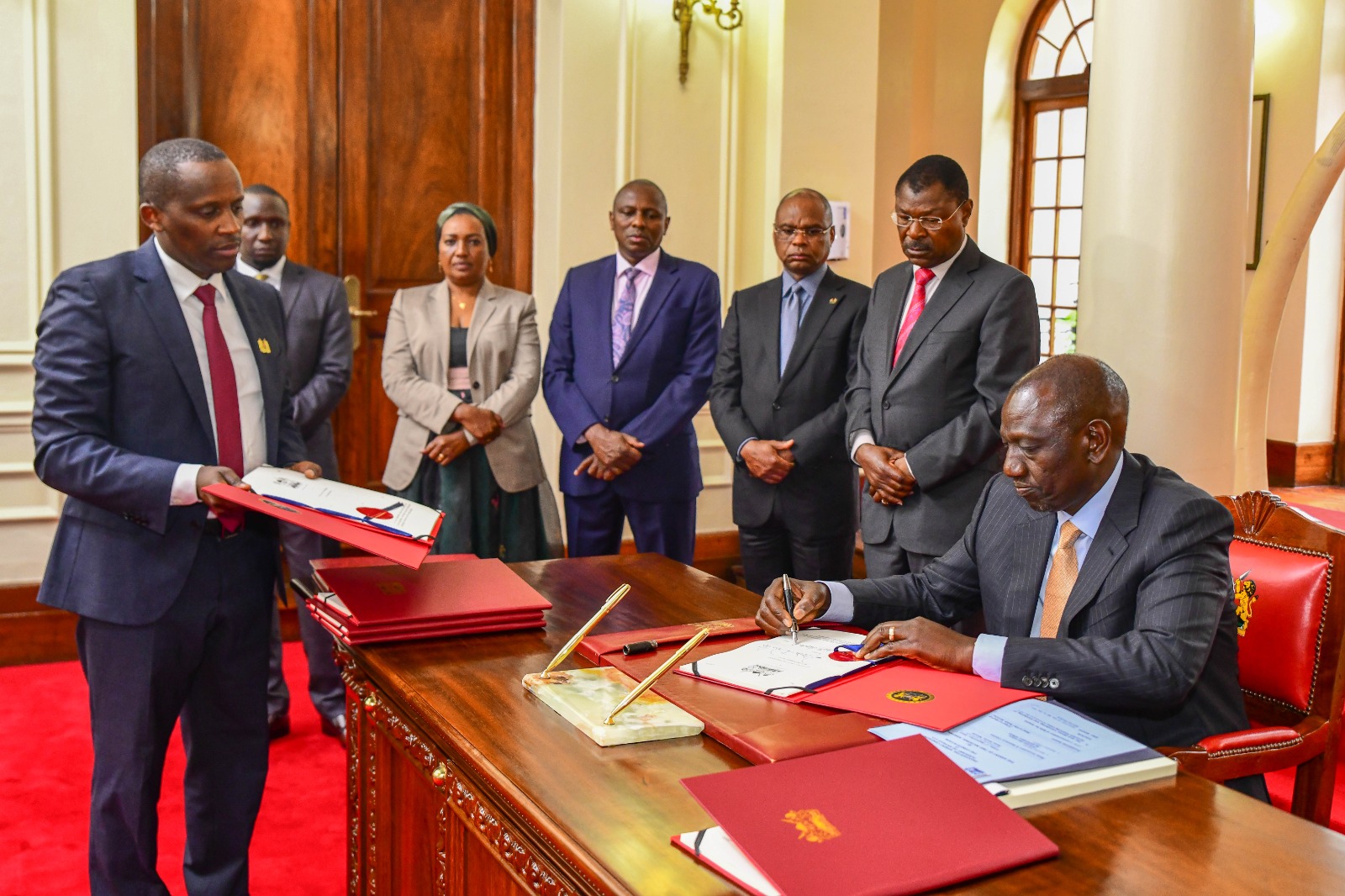
Under the new law, the Capital Markets Authority has been given the power to implement compliance of its licensees with the laws on anti-money laundering and combating terrorism financing and proliferation financing.
Also Read: Ruto Goes After Judges, Promises Clean-Up
Similarly, the new law gives the Insurance Regulatory Authority the power to enforce compliance of its licensees with the laws on anti-money laundering and combating terrorism financing and proliferation financing.
The piece of legislation will also harmonize the licensing regime under the Act with the Financial Action Task Force (FATF) Standards.
Furthermore, the new law provides that the Central Bank of Kenya (CBK) supervises financial institutions and agents of reporting institutions.
Consequently, the Bill has integrated the laundering of the proceeds of corruption under the definition of ‘economic crime.’
President Ruto Assents Other Bills
Aside from signing into law the Anti-Money Laundering and Combating of Terrorism Financing Laws (Amendment) Bill, 2023, President Ruto also assented to the Climate Change (Amendment) Bill (National Assembly Bill No. 42 of 2023), which was published in July.
This law amends the Climate Change Act, 2016, allowing for the regulation of the carbon markets as well as improving response to climate change.
Also Read: Ruto’s Office Shortlists 34 Candidates for Job Interviews
Additionally, the new climate change bill provides transactions in carbon trading as carried out under the Act reducing greenhouse gas emissions.
Moreover, the statement by state house notes that the Cabinet Secretary can enter into a bilateral or multilateral agreement to trade carbon for emission reductions and removals with the approval of the Cabinet.
